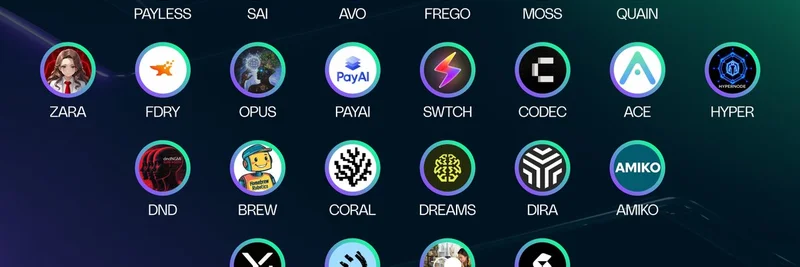In the fast-paced world of cryptocurrency, privacy remains a hot topic, especially as more users and developers seek ways to protect transactions and data on public blockchains. A recent discussion on X (formerly Twitter) sparked by developer Swayam (@DevSwayam) challenges the common perception that Zcash is the gold standard for privacy. Instead, it highlights why newer projects and technologies might offer more comprehensive solutions. Let's break this down and see what it means for the broader crypto ecosystem, including meme token enthusiasts who often deal with volatile, community-driven assets.
The Critique of Zcash
Zcash, launched in 2016, uses zero-knowledge proofs (ZK proofs for short—a cryptographic method that allows one party to prove something to another without revealing extra info) to enable private transactions. But according to Swayam, it's not enough. He argues that true privacy in crypto goes beyond just hiding transfer amounts or addresses. "If you think @Zcash solved privacy, you’ve misunderstood what privacy in crypto really means," he posted.
The issue? Zcash is great for private money transfers but falls short on enabling complex, private actions directly on the blockchain. Think about it: in a meme token world where communities might want to vote anonymously, stake privately, or even inscribe data without exposing details, Zcash's scope feels limited. Swayam points out that while you could hack some extras onto Zcash—like posting data or commitments—it's not seamless.
Emerging Alternatives and the Role of Ethereum
Shifting focus, Swayam shouts out projects like Railgun (@RAILGUN_Project), Nocturne (@nocturne_xyz), and Privacy Pools (@0xprivacypools). These aim for deeper anonymity and confidentiality. Railgun, for instance, allows private transactions on Ethereum without revealing balances or recipients, which could be a game-changer for meme token traders wanting to avoid front-running or doxxing.
He's particularly bullish on Ethereum-based innovations from teams like Aztec Network (@aztecnetwork), Miden (@0xMiden), and zkSync's private validium. These leverage ZK tech to enable "private actions on-chain," meaning you could execute smart contracts (self-executing code on the blockchain) privately. For meme tokens, this could mean anonymous launches, private liquidity pools, or shielded community governance—keeping the fun without the surveillance.
The Challenges Ahead
But it's not all smooth sailing. Swayam notes that zero-knowledge proofs aren't fully mature yet. Integrating ZK into high-traffic chains like Base, Solana, or Arbitrum without slowing things down or hurting user experience (UX) is a tall order. "ZK is still not there yet," he says, estimating at least two more years before it's ready for prime time. He draws from hands-on experience, like syncing Ethereum data in Railgun or reviewing Nocturne's code, to back this up.
Interoperability is another hurdle: How do private layer-2 solutions (L2s, which are scaling layers on top of main chains) tap into existing liquidity without compromising privacy? Right now, it's tricky, but Swayam sees ZK as the "endgame" for privacy, alongside other tech like fully homomorphic encryption (FHE) combined with multi-party computation (MPC).
Real-World UX and Recommendations
One standout recommendation is Fluidkey (@fluidkey), praised for its smooth, end-to-end private UX. Unlike some ZK apps that feel clunky, Fluidkey makes privacy feel effortless—ideal for everyday users dipping into meme tokens without leaving a digital footprint.
Swayam wraps up by inviting debate: Why do some still swear by Zcash, or claim ZK is already perfected? It's a call to the community to share insights, underscoring that privacy is evolving and collaborative.
Why This Matters for Meme Tokens
For those in the meme token space, privacy isn't just a buzzword—it's essential. Public blockchains expose every trade, which can lead to targeted scams or loss of competitive edge. As meme coins like Dogecoin or newer Solana-based tokens gain traction, adopting robust privacy tools could protect creators and holders alike. Projects building on Ethereum's privacy layers might even spawn the next wave of anonymous meme launches, blending humor with security.
This thread, reshared by Hitesh (@hmalviya9), serves as a wake-up call. If you're building or investing in blockchain, especially memes, keep an eye on these developments. Privacy season is here, and it's about to get even more exciting. For the full thread, check it out here.

